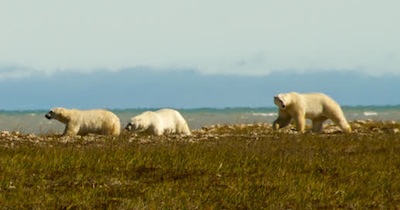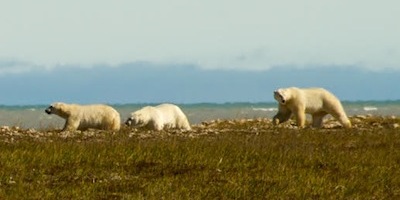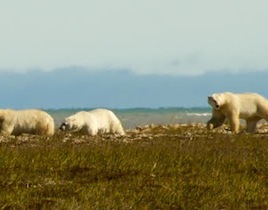
Polar bears, like these photographed near Hudson Bay in 2010, are in jeopardy due to decreasing ice cover in Canada’s Arctic Archipelago. (Photo credit: Stephen Hamilton)
A new study suggests that if arctic warming trends continue, a quarter of the world’s polar bears will be unable to survive by 2100. The study uses a climate model to create detailed projections for the ice cover in the Canadian Arctic Archipelago, the series of islands and channels that dominate the far North of Canada.
The model indicates that by 2100, each polar bear population in the Archipelago may have to endure 2–5 months of ice-free conditions, where no such conditions exist presently. As polar bears rely on ice to maintain their lifestyle, the authors estimate that as many as 25 per cent of the world’s individuals will not be able to meet their nutritional and reproductive demands.
Original research paper published in PLOS ONE on November 26, 2014.
Names and affiliations of selected authors


